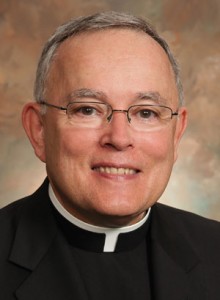“Beauty is the battlefield where God and Satan contend for the hearts of men.”
— Dostoyevsky, The Brothers Karamazov
“Late have I loved thee, Beauty so old and so new; late have I loved thee. Lo, you were within, but I was outside, seeking there for you, and upon the shapely things you have made I rushed headlong — I, misshapen. You were with me, but I was not with you. They held me back far from you, those things which would have no being, were they not in you.”
— Augustine, The Confessions
A friend once told me the story of how she first met God. She doesn’t remember her age; it must have been about 4 or 5. Her family lived in the countryside on the rim of one of our big eastern cities. And one June evening, cloudless, moonless, with just the hint of a humid breeze, her father took her out into the back yard in the dark and told her to look up at the sky.
From one horizon to the other, all across the black carpet of the night, were the stars — thousands of them, tens of thousands, in clusters and rivers of light. And in the quiet, her father said, “God made the world beautiful because he loves us.”
That was more than 50 years ago. My friend grew up and learned all about entropy and supernovae and colliding galaxies and quantum mechanics and the general theory of relativity. But still, when she closes her eyes, she can see that carpet of stars and hear her father’s voice. God made the world beautiful because he loves us.
Creation is more than an accident of dead matter. It’s a romance. It has purpose. It sings of the Living God. It bears his signature.
The story of my friend offers several lessons we might consider this week as summer begins and life starts to briefly slow down.
First, the most powerful kind of witness doesn’t come from a classroom or pulpit. It doesn’t need an academic degree or special techniques. Instead, it grows naturally out of the lives of ordinary people – parents and spouses and friends; people confident in the love that God bears for them and eager to share it with others; people who know the world not as a collection of confused facts but as a symphony of truth and meaning.
Second, nature is sacramental. It points to things outside itself. God speaks and creation sings in silence. We can’t hear either if we’re cocooned in a web of manufactured distraction, anxiety and noise. We can’t see the heavens if our faces are buried in technologies that turn us inward on ourselves. Yet that’s exactly what modern American life seems to promote: a restless and relentless material appetite for “more,” that gradually feeds selfishness and separates each of us from everyone else.
Third and finally, every experience of real beauty leads us closer to three key virtues: humility, because the grandeur of creation invites awe and lifts us outside ourselves; love, because the human heart was made for glory and joy, and only the Author of life can satisfy its longings; and hope, because no sadness, no despair, can ultimately survive the evidence of divine meaning that beauty provides.
If the world we see taking shape around us today in the name of a false freedom often seems filled with cynicism, ugliness, little blasphemies and sadness, we need to ask why. And then we need to turn our hearts again to the God of beauty – Augustine’s “Beauty so old and so new” — who created us, who sings his longing for us in the grandeur of the world he made, and who renews our souls.
God lives in the summer rain, the stars in the night sky, the wind in the leaves of the trees. He speaks to us through a creation alive with his love. We need to be silent, and watch and listen. And then we need to join in nature’s symphony of praise.



1. This is my Father’s world,
and to my listening ears
all nature sings, and round me rings
the music of the spheres.
This is my Father’s world:
I rest me in the thought
of rocks and trees, of skies and seas;
his hand the wonders wrought.
2. This is my Father’s world,
the birds their carols raise,
the morning light, the lily white,
declare their maker’s praise.
This is my Father’s world:
he shines in all that’s fair;
in the rustling grass I hear him pass;
he speaks to me everywhere.
3. This is my Father’s world.
O let me ne’er forget
that though the wrong seems oft so strong,
God is the ruler yet.
This is my Father’s world:
why should my heart be sad?
The Lord is King; let the heavens ring!
God reigns; let the earth be glad!
So beautiful! Creation…”It’s a romance. It has purpose. It sings of the Living God. It bears his signature.” God’s love story for us.
Dear Archbishop, Thank you for reminding us what beauty is and to turn our faces away from self to BEAUTY Who is God!
Miss you in Denver (while loving Archbishop Samuel)
Thank you for thias beautiful article!
Excellent piece, dear Archbishop, especially the three virtues emanating from Beauty. Thank you very much.
Wonderful article. I am most distressed when I see the construction or renovation of churches when, one would think, the genius and skill of the human artist would be brought to bear on a display of the glory of God but is sadly ignored or minimized. Just a moment wasted. How sad.
While not disagreeing with a word the good archbishop said, and particularly enjoying his insights as to the virtues of beauty, I would place the human body, male and female, at the pinnacle of all the -physical- examples listed, and it’s not even really that close. And I love the beauty in nature, too.